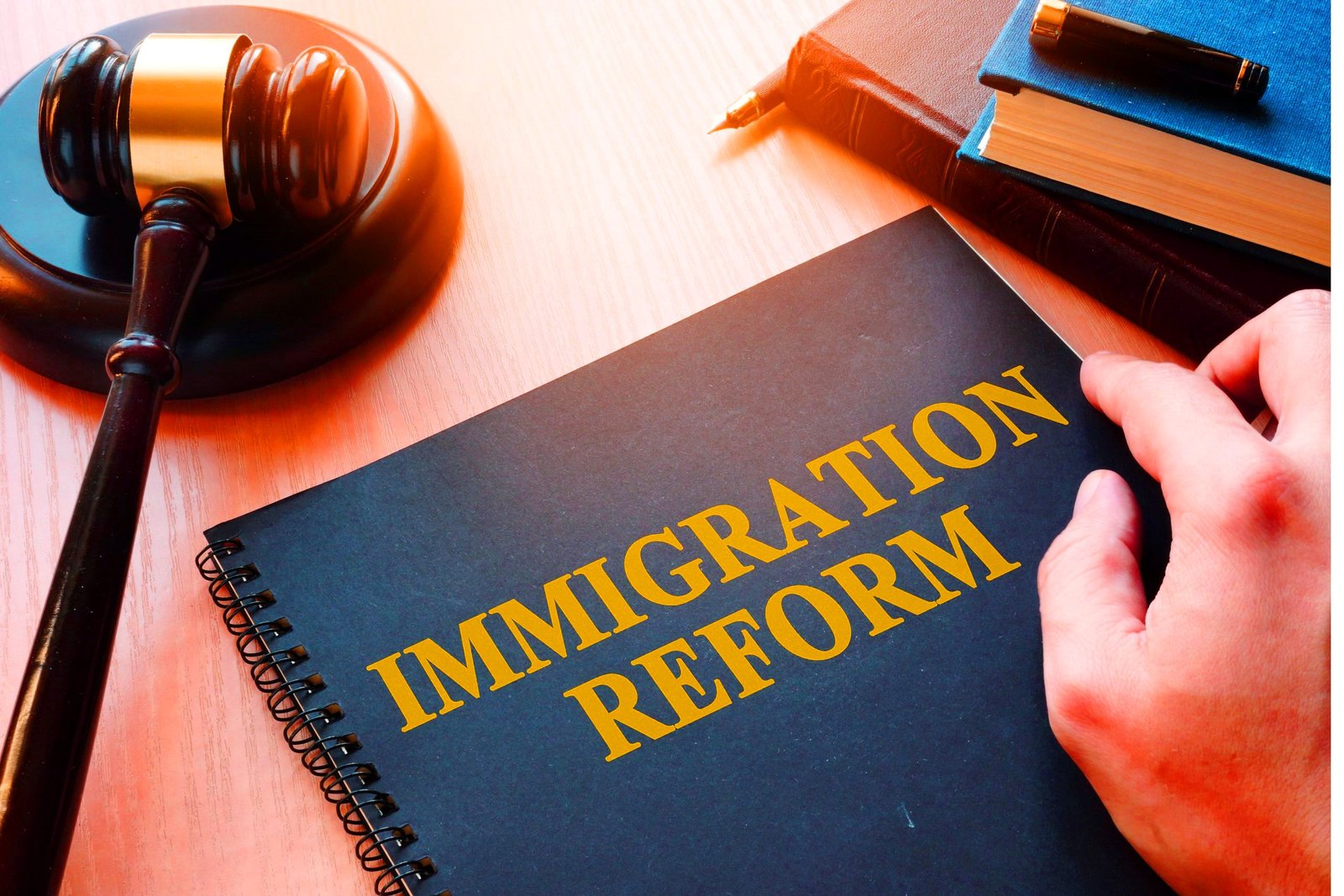Detention of Immigration and Asylum Seekers

Detention, in the context of immigration and asylum seekers, is a practice that has sparked considerable debate globally. As nations grapple with the complexities of immigration policies, the detention of individuals seeking refuge has become contentious. In this article, we’ll delve into the reasons behind the detention of immigration and asylum seekers, controversies surrounding this practice, global detention practices, challenges faced by detainees, alternatives to detention, recent developments, public perception, and more.
Contents
- 1 Reasons for Detention
- 2 Controversies Surrounding Detention
- 3 Global Detention Practices
- 4 Challenges Faced by Detainees
- 5 Alternatives to Detention
- 6 Recent Developments and Reforms
- 7 Public Perception and Awareness
- 8 Detention Statistics
- 9 Impact on Asylum Seekers
- 10 Governmental Perspectives
- 11 International Collaborations and Agreements
- 12 Humanitarian Organizations’ Role
- 13 Case Studies
- 14 Conclusion
- 15 FAQs
Reasons for Detention
Legal Procedures
One of the primary reasons for the detention of immigrants and asylum seekers is to facilitate legal processes. Governments argue that detaining individuals ensures their presence during legal proceedings, helping maintain order and adherence to established immigration laws.
National Security Concerns
Detention is often justified on the grounds of national security. Governments may assert that detaining specific individuals is necessary to protect the country from potential threats posed by those seeking asylum.
Public Safety
The safety of the public is cited as another rationale for detention. Authorities argue that specific individuals must be detained to prevent potential harm or criminal activities in the host country.
Controversies Surrounding Detention
Human Rights Concerns
Detention of immigration and asylum seekers raises significant human rights concerns. Critics argue that it infringes on the fundamental rights of individuals, including the right to liberty and fair treatment.
Impact on Mental Health
Extended periods of detention can have severe consequences on the mental health of detainees. Isolation, uncertainty, and the fear of deportation contribute to elevated stress levels and mental health challenges.
Separation of Families
One of the most emotionally charged controversies is the separation of families due to detention. Children, in particular, may suffer long-term psychological effects from being separated from their parents.
Global Detention Practices
Varied Approaches in Different Countries
Detention practices vary widely across countries. Some nations opt for strict detention policies, while others employ more lenient approaches, allowing asylum seekers greater freedom during the application process.
International Standards and Guidelines
International organizations, such as the United Nations, provide guidelines on treating asylum seekers. However, implementing these guidelines varies, leading to disparities in global detention practices.
Challenges Faced by Detainees
Access to Legal Representation
Detainees often face challenges in accessing legal representation. Limited resources and language barriers can hinder their ability to navigate complex legal processes.
Living Conditions
The conditions within detention facilities are a significant concern. Overcrowding, inadequate healthcare, and substandard living conditions contribute to the overall hardship experienced by detainees.
Duration of Detention
The prolonged detention of individuals awaiting asylum decisions exacerbates the challenges they face. Uncertain timelines and lengthy processing periods contribute to the mental and emotional strain on detainees.
Alternatives to Detention
Community-Based Programs
Some argue for alternatives to detention, such as community-based programs that allow asylum seekers to reside in designated communities while awaiting legal decisions.
Electronic Monitoring
Electronic monitoring, such as ankle bracelets, is proposed as a less restrictive alternative to detention. This approach allows authorities to track individuals’ movements without physical confinement.
Case Management
Case management, involving regular check-ins and support services, is suggested as a more humane way to ensure individuals comply with immigration procedures.
Recent Developments and Reforms
Changes in Policies
Several countries have undergone policy changes in response to the growing concerns surrounding the detention of immigrants and asylum seekers. Reforms aim to address issues related to human rights and public opinion.
Advocacy Efforts
Human rights organizations and advocacy groups are crucial in pushing for reforms. Their efforts focus on raising awareness, influencing policy changes, and ensuring the fair treatment of asylum seekers.
Public Perception and Awareness
Media Influence
Media coverage significantly shapes public perception of immigration and asylum seekers. Biased reporting can contribute to negative stereotypes and impact public opinion on detention practices.
Public Opinion
Public opinion on the detention of immigrants and asylum seekers varies. Cultural attitudes, political ideologies, and personal experiences influence how people perceive these practices.
Read More: Understanding Immigration Law’s Complexity
Detention Statistics
Global Numbers
Statistics on the detention of immigration and asylum seekers reveal the scale of this practice globally. Analyzing these numbers provides insights into trends, demographics, and areas of concern.
Demographics
Understanding the demographics of detained individuals sheds light on the challenges various groups face. Gender, age, and nationality all play roles in the detention experience.
Impact on Asylum Seekers
Trauma and Stress
The impact of detention on the mental health of asylum seekers cannot be overstated. Many individuals fleeing persecution or violence arrive with pre-existing trauma, which may be exacerbated by detention.
Integration Challenges
Detainees eventually granted asylum may face challenges in integrating into their host societies. The experiences of detention can leave lasting scars that affect their ability to rebuild their lives.
Governmental Perspectives
Justification for Detention
Governments justify detention as a necessary component of immigration control. Balancing national security, public safety, and legal processes is often cited as the rationale behind this practice.
Immigration Policies
Detention is closely tied to a nation’s broader immigration policies. Striking a balance between border control and humanitarian considerations is a complex challenge governments worldwide face.
International Collaborations and Agreements
Bilateral Agreements
Some countries enter into bilateral agreements regarding the detention and treatment of asylum seekers. These agreements aim to streamline processes and ensure a consistent approach to immigration.
Humanitarian Cooperation
International cooperation on humanitarian grounds is crucial in addressing the challenges of immigration and asylum seekers. Collaborative efforts can lead to more compassionate and practical solutions.
Humanitarian Organizations’ Role
Advocacy
Humanitarian organizations play a pivotal role in advocating for the rights of asylum seekers. Their efforts focus on challenging unjust detention practices and promoting more humane alternatives.
Support Services
Providing support services, including legal aid and counselling, is integral to the work of humanitarian organizations. These services aim to alleviate the hardships faced by detained individuals.
Case Studies
Highlighting Specific Detention Cases
Examining specific detention cases provides a nuanced understanding of the challenges and successes in the asylum process. Legal outcomes and the impact on individuals can vary widely.
Legal Outcomes
The legal outcomes of detention cases are crucial in shaping future policies. Precedents set in courts influence the treatment of asylum seekers and impact the overall approach to immigration.
Read More: Reforms to Immigration Policy and Developments
Conclusion
In conclusion, the detention of immigration and asylum seekers is a multifaceted issue that demands careful consideration. Striking a balance between national interests and humanitarian concerns is challenging but essential. As societies grapple with this complex topic, ongoing reforms, advocacy efforts, and a focus on the well-being of detainees are crucial for creating a fair and just system.
FAQs
Are there alternatives to detaining asylum seekers?
Yes, alternatives include community-based programs, electronic monitoring, and case management.
How do detention practices vary globally?
Detention practices vary widely, with some countries opting for strict policies and others employing more lenient approaches.
What challenges do detainees face in accessing legal representation?
Limited resources and language barriers can hinder detainees’ access to legal representation.
How does detention impact the mental health of asylum seekers?
Prolonged detention can contribute to elevated stress levels and exacerbate pre-existing trauma among asylum seekers.
What role do humanitarian organizations play in addressing detention issues?
Humanitarian organizations advocate for the rights of asylum seekers and provide support services, including legal aid and counselling.


